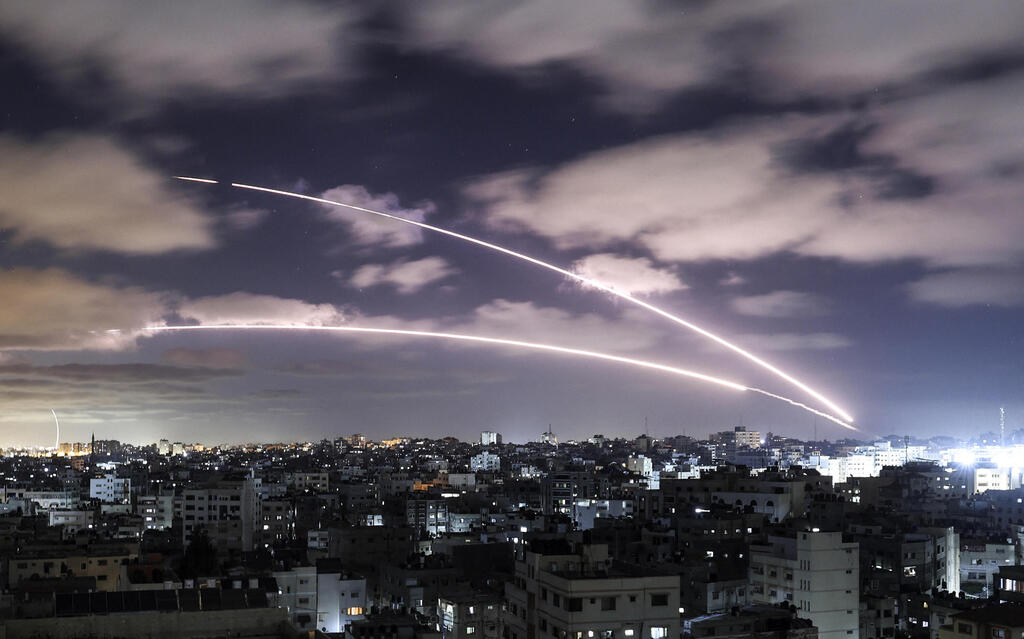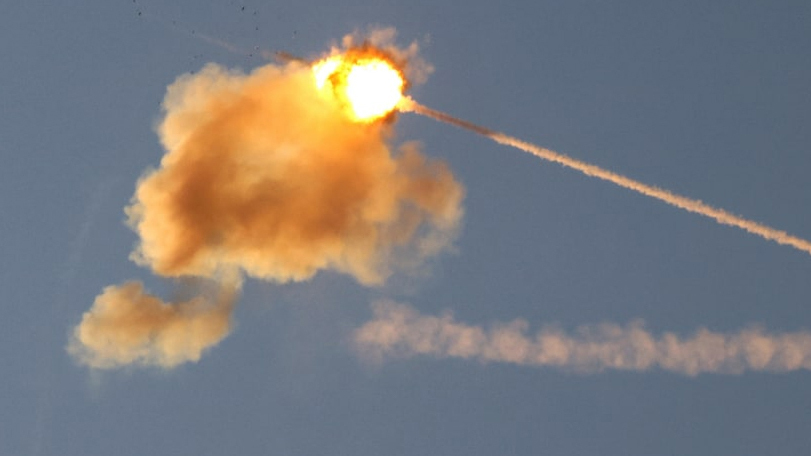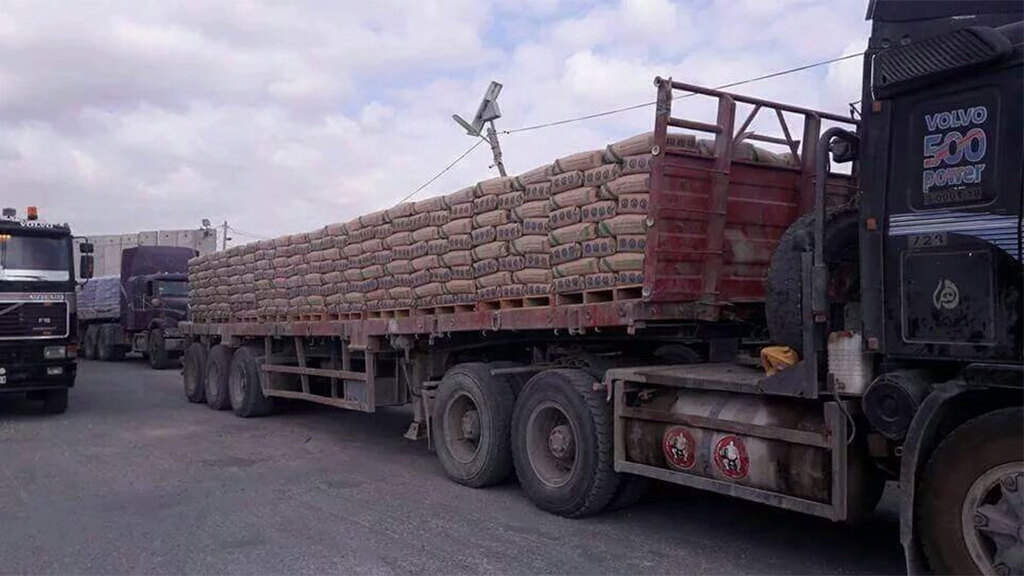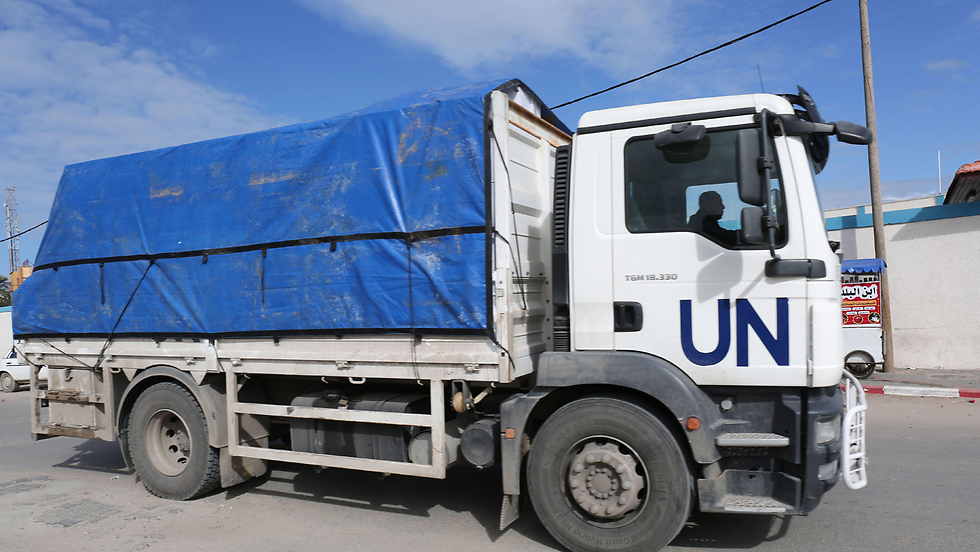Now that the fighting between Israel and the Hamas terror group has subsided, the time has come for Israel to carefully examine the wisdom of its strategy on the Gaza Strip.
Given that it is unrealistic to believe that the Palestinian Authority will take control of the Gaza Strip, and assuming Israel continues its policy of containment based on military deterrence, the challenge will be to boost the prospects of lasting stability on the border.
5 View gallery


Iron Dome intercepts rocket fire from Gaza during the recent round of fighting
(Photo: AFP)
Israel's past policies of containment have proven untenable.
After the 51-day war in 2014, Israel and the international community agreed on a mechanism to rebuild Gaza while preventing the terror factions from doing the same with their military capabilities.
Reconstruction efforts were slow paced and often suffered from lack of funding.
And while Israel relied on international inspections and surveillance to ensure the terror factions would not be able to rebuild their military might, Hamas and Islamic Jihad managed to locally produce an arsenal of rockets in numbers and with the capability to target areas as far away as the center of Israel.
After 2014, the flow of materials earmarked for reconstruction of civilian areas continued even after it became clear that Hamas was seizing them for their own military purposes.
Materials also flowed in through the Salah-a-Din border crossing between Gaza and Egypt's Sinai Desert, which opened three years ago with very little inspection and where Hamas collects duty on every shipment in order to finance their operations.
Israel hoped that allowing Qatari cash deliveries into Gaza, ostensibly for civilian infrastructure projects and financial aid for poor families, would ensure calm. But that too turned out to be an illusion because Qatar is a supporter of Hamas and home to some of its senior leadership.
Even the efforts to negotiate long-term calm with the terror groups in Gaza failed, and the gulf between Israeli and Palestinian positions remained.
Israel's deterrence eroded after 2014 and it must now be rebuilt and form the basis upon which its policy is structured from now on.
Prime Minister Benjamin Netanyahu and Defense Minister Benny Gantz both assured Israelis that the IDF would respond in force to any act of aggression from Gaza.
But will Israel live up to that commitment, or will it prefer to look the other way when a rogue rocket or incendiary device is launched, in order to avoid another round of fighting.
How Israel choses to act will determine the effectiveness of its deterrence.
Egypt and the U.S. must now be tasked with rebuilding the Gaza Strip in the wake of Israel's effective air strikes during the 11 days of fighting. The job must not again be handed to the UN.
Regional countries such as the Gulf states should also be conscripted to join the efforts, and funding should be sourced from international organizations in order to reduce the importance of the Qatari aid.
Building materials have to be kept out of Hamas hands while the humanitarian aid, which must flow freely to the civilian population, must be carefully inspected and protected.
Any agreement that facilitates the rebuilding of Gaza must also include the return of the Israelis held by Hamas in the Strip.
Israel must also determine whether it can stop arms reaching Gaza with the kind of military operations it uses in Syria to thwart Iranian intrenchment and to prevent the flow of weapons for the Iran-based Hezbollah terror group in Lebanon.
The country must shore up its defenses by accelerating efforts to develop defensive weapons such as a laser-based missile defense system. Equally important, it must complete the construction of bomb shelters for all civilians living within the range of Gaza rocket fire.
5 View gallery


The Iron Dome missile defense system intercepts a rocket fired from Gaza during the fighting earlier this month
(Photo: Reuters)
In the long-term, Israel must cut itself off from Gaza entirely by providing the Strip with the infrastructure needed to operate independently, including a port that would still be subject to Israeli security but would accommodate the needs of the local population.
Israel must actively strengthen the Palestinian Authority under the leadership of President Mahmoud Abbas and weaken the PA's rival rulers of the Strip. Abbas may be a problematic ally for Israel but security coordination with him has proven effective.
As long as Hamas remains in control of the Gaza Strip, and with no political solution to the Israeli-Palestinian conflict in sight, the enclave will remain a threat.
But the risks could be minimized, especially if the weakest of Israel's enemies does not distract the IDF from its actions against stronger foes to the north.
For if Israel fails to handle the Gaza issue, the next conflict may not be limited to the southern front alone.
Michael Herzog is a retired brigadier general in the Israel Defense Forces and an Israel-based International Fellow of The Washington Institute




